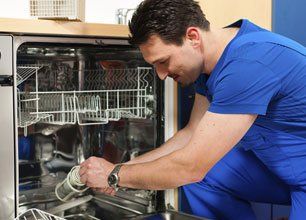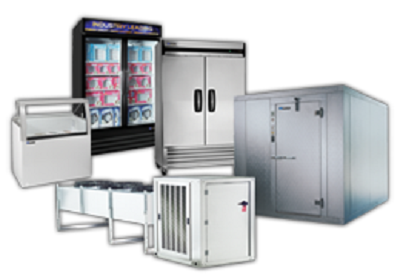Necessary Tips for Effective Ref Fixing to Extend Device Life Expectancy
When it comes to your refrigerator, appropriate repair work and upkeep are important for longevity. Recognizing usual issues and understanding when to act can make all the difference.
Recognizing Common Refrigerator Problems
Refrigerators are vital in maintaining your food fresh, but they can experience a range of usual problems that disrupt their efficiency. If you see food ruining quicker than common, examine the thermostat setups or think about if the door seals are damaged. Identifying these issues early can conserve you time and money in fixings, guaranteeing your fridge runs efficiently and effectively.
Normal Upkeep Practices
To maintain your devices running efficiently, you need to stay on top of routine upkeep methods. Clean the condenser coils, inspect the door seals, and monitor the temperature level setups to ensure peak performance. These basic jobs can conserve you money and time on repairs down the line.
Tidy Condenser Coils Frequently
Cleansing your condenser coils regularly can substantially improve your appliance's performance. Dust and dust build up on these coils over time, triggering your home appliance to function more challenging and take in even more power. To maintain them tidy, unplug your appliance and carefully get rid of any kind of safety covers.
Check Door Seals
Three straightforward steps can aid you ensure your appliance's door seals are in good condition. First, inspect the seals consistently for any type of fractures, tears, or signs of wear. These problems can bring about air leaks, impacting efficiency. Second, clean the seals making use of cozy, soapy water to remove any type of particles or crud. A clean seal guarantees a limited fit and far better performance. Finally, perform an easy examination by shutting the door on a paper. If you can conveniently draw it out without resistance, the seal could need changing. By complying with these steps, you'll preserve your device's effectiveness and long life, saving you money on power costs and fixings in the long run.
Display Temperature Setups
On a regular basis monitoring your appliance's temperature settings is crucial for ideal efficiency and effectiveness. Whether you're taking care of a fridge, fridge freezer, or stove, keeping an eye on these settings can protect against numerous concerns. For fridges, goal for temperature levels in between 35 ° F and 38 ° F; for freezers, linger 0 ° F. If the temperature levels are too expensive or low, your home appliance might work harder, wasting energy and shortening its life-span. Utilize a thermostat to examine these settings consistently, especially after major changes, like relocating your appliance or readjusting the thermostat. If you discover variations, readjust the setups accordingly and get in touch with the user guidebook for assistance. By staying positive about temperature surveillance, you'll guarantee your devices run smoothly and last much longer.
Fixing Air Conditioning Concerns
When your fridge isn't cooling properly, it can result in ruined food and squandered cash, so dealing with the issue promptly is essential. Start by examining the temperature level setups to verify they go to the advised degrees, typically around 37 ° F for the refrigerator and 0 ° F for the freezer. If the setups are correct, evaluate the door seals for any kind of spaces or damage; a defective seal can allow cozy air to go into.
Check the condenser coils, usually situated at the back or bottom of the unit. Clean them with a vacuum or brush to maximize efficiency. If problems continue, it might be time to call a specialist.
Repairing Water Leak and Ice Build-Up
If you're dealing with water leak or ice accumulation in your device, it's vital to recognize the source of the problem. By determining where the water is originating from, you can stop additional issues and avoid costly fixings. Allow's explore some efficient techniques to tackle these common problems.
Recognize Leak Sources
Just how can you successfully determine the sources of water leakage and ice accumulation in your appliances? Beginning by examining the seals and gaskets on your fridge and fridge freezer doors. By systematically examining these locations, you'll identify the resource of the problem, allowing you to take the required steps to fix it and expand your home appliance's life expectancy.
Avoid Ice Development
To avoid ice development in your devices, start by validating the temperature level settings are appropriate. If your refrigerator or freezer is as well cool, it can lead to too much ice build-up. Examine the door seals regularly; harmed seals can allow warm air in, creating condensation and ice development.
Maintain the appliance well-ventilated and prevent congestion, as this can block airflow - Refrigerator repair experts Dependable Refrigeration & Appliance Repair. Likewise, regularly thaw your fridge freezer if it does not weblink have an automated defrost attribute.
If you observe water leak, determine and deal with any kind of blocked drainage openings, as they can add to ice accumulation. Ultimately, clean the coils and verify they're functioning properly to keep peak performance. Taking these actions will aid extend your appliance's life-span and efficiency.
Resolving Noisy Fridge Seems
While it may seem worrying, a noisy refrigerator often signals minor problems instead than significant breakdowns. Common wrongdoers include the compressor, fans, and water lines.
Following, look for loosened items inside. Occasionally, containers or racks can rattle, producing unwanted sound. Tighten up or reposition them to get rid of the sounds.
If you notice a clicking sound, it may be the defrost timer. This is usually safe however could show it needs assessment.
Ultimately, confirm your fridge is level. An out of balance appliance can create resonances and noise. Use a degree to examine, and change the feet if needed. Attending to these concerns without delay can aid maintain your fridge's efficiency and prolong its life expectancy.
When to Change Components vs. Complete Replacement

Take into consideration the cost of repair services versus the appliance's worth. Additionally, if you discover recurring problems that keep recurring, it's an indication that your home appliance has gotten to the end of its life.
Knowing When to Call an Expert
Just how can you tell when it's time to call in a professional for device repair? If you see unusual noises, smells, or leaks, it's a clear signal that something's incorrect. Do not disregard these indicators; they typically suggest much deeper issues. If your home appliance quits working completely or frequently trips breaker, it's another red flag.
You should additionally consider your own comfort degree with fixings. If you're not sure regarding diagnosing the problem or lack the right devices, it's ideal to get to out for help. Bear in mind, trying complicated repair services can lead to even more damages or perhaps safety dangers.

Frequently Asked Inquiries
Just how Typically Should I Tidy the Fridge Coils?
You need to clean your refrigerator coils every 6 months. This assists preserve effectiveness and stops overheating. If you notice too much dust or pet dog hair, tidy them more often to ensure your refrigerator runs efficiently.

Can I Use Vinegar for Cleaning My Refrigerator?
Yes, you can utilize vinegar to cleanse your fridge! It's an excellent natural cleaner that gets rid of smells and discolorations. Dependable Refrigeration & Appliance Repair Service LG Appliance Repair. Simply blend it with water, use it to surfaces, and wipe down for a fresh, tidy refrigerator
What Temperature Should My Fridge Be Set To?
You ought to establish your fridge to 37 ° F(3 ° C) for optimal food conservation. This temperature level keeps your food fresh while protecting against spoilage, ensuring your groceries last much longer and minimizing waste. It's a very easy adjustment you can make!
Does a Fridge Need to Be Leveled?
Yes, your refrigerator requires to be leveled. If it's irregular, it can affect cooling efficiency and trigger excess sound. Check the leveling legs and change them to assure appropriate balance for suitable efficiency.
How Can I Decrease Fridge Energy Usage?
To minimize your fridge's important link power intake, keep it clean and well-ventilated, examine door seals for leaks, established the temperature level between 35-38 ° F, and avoid overwhelming it. These actions can considerably lower your power costs.